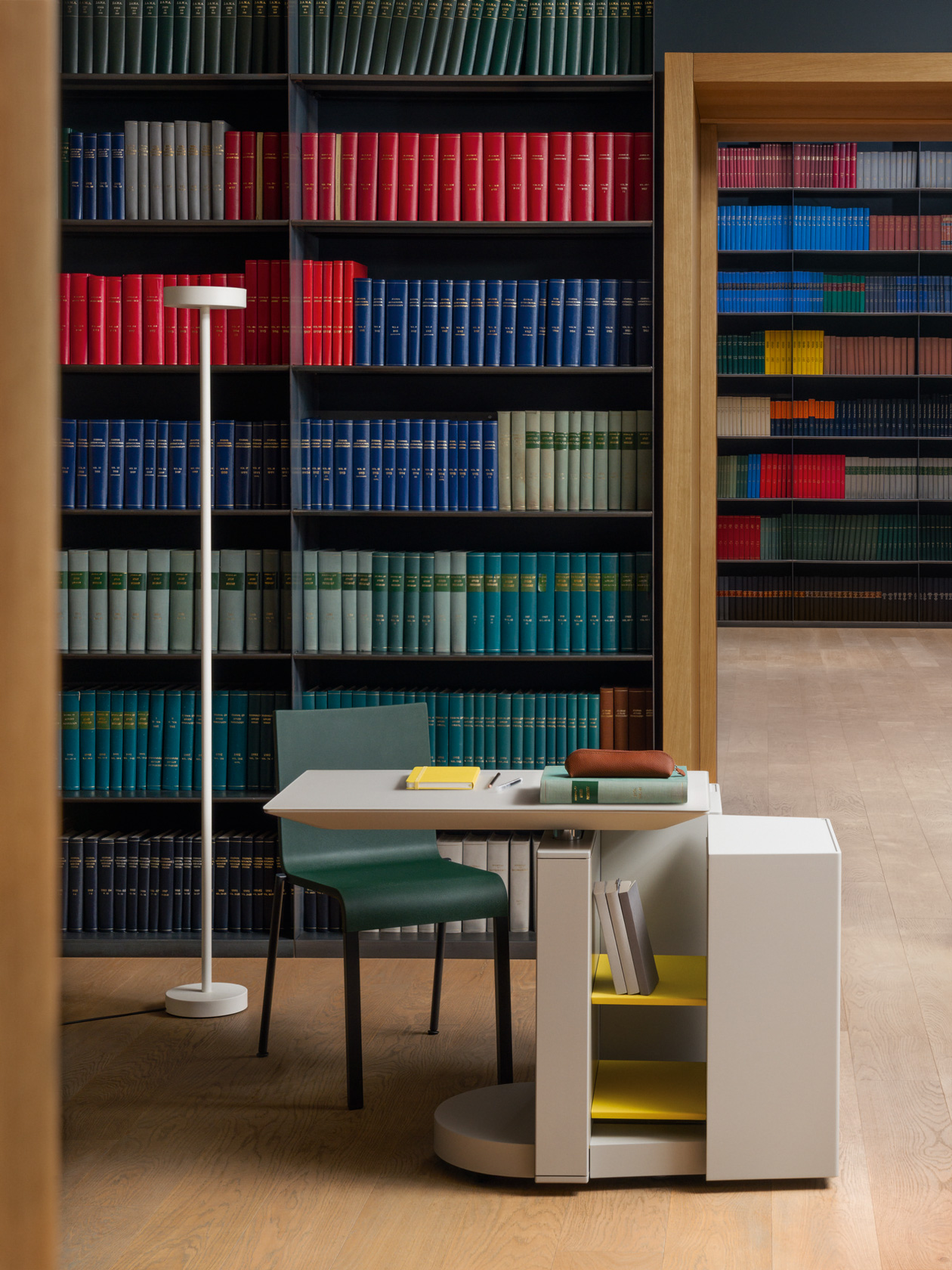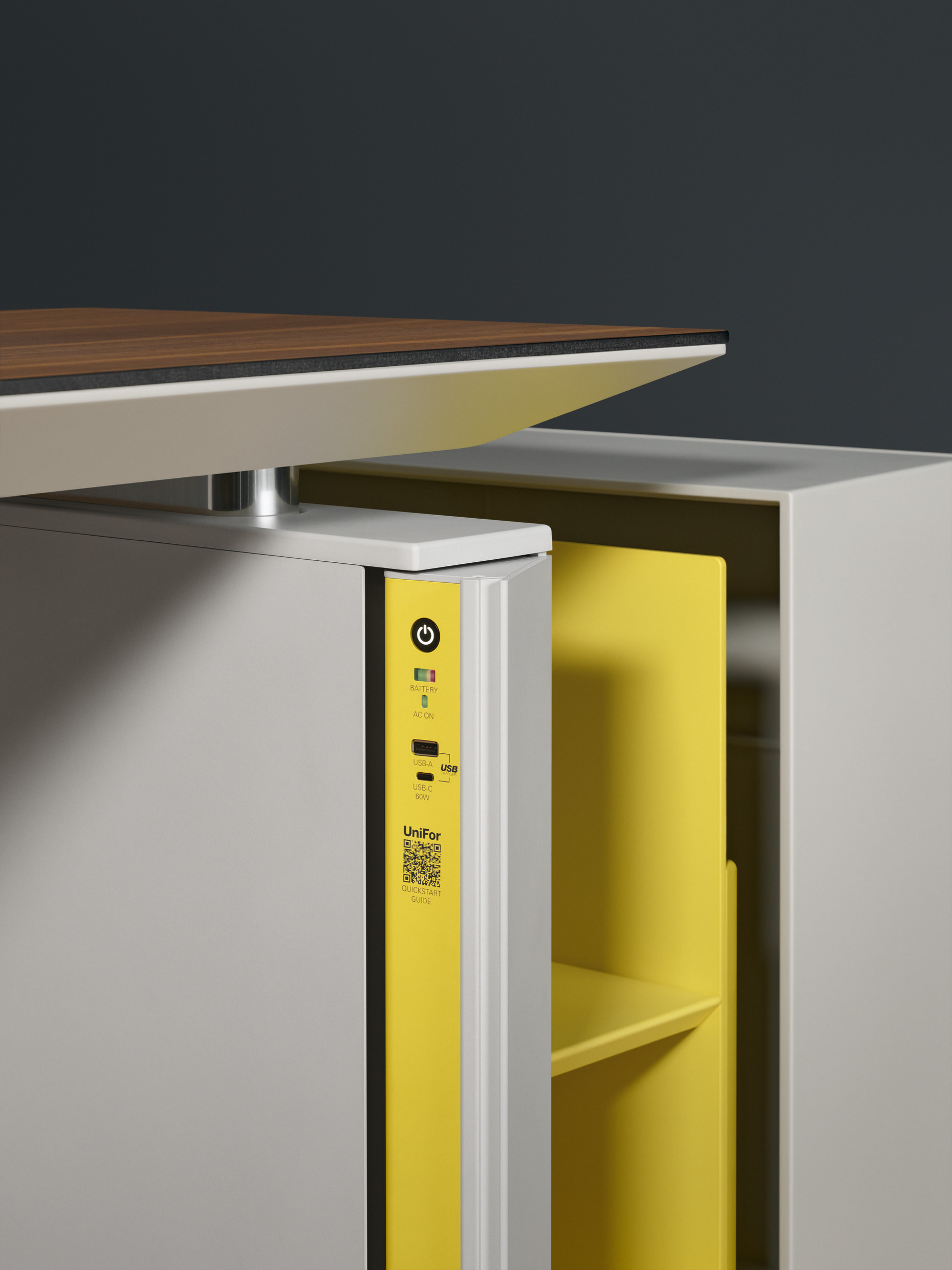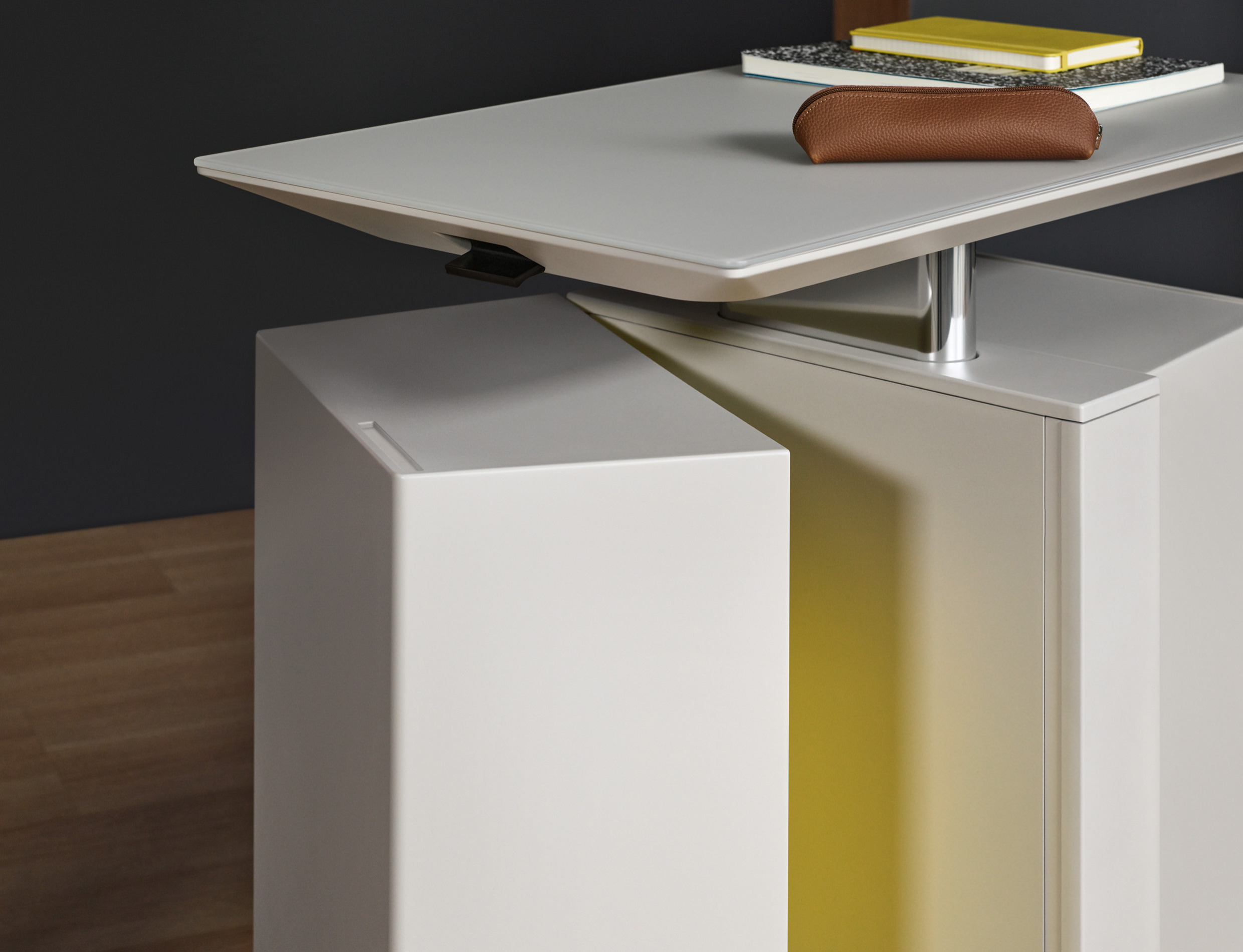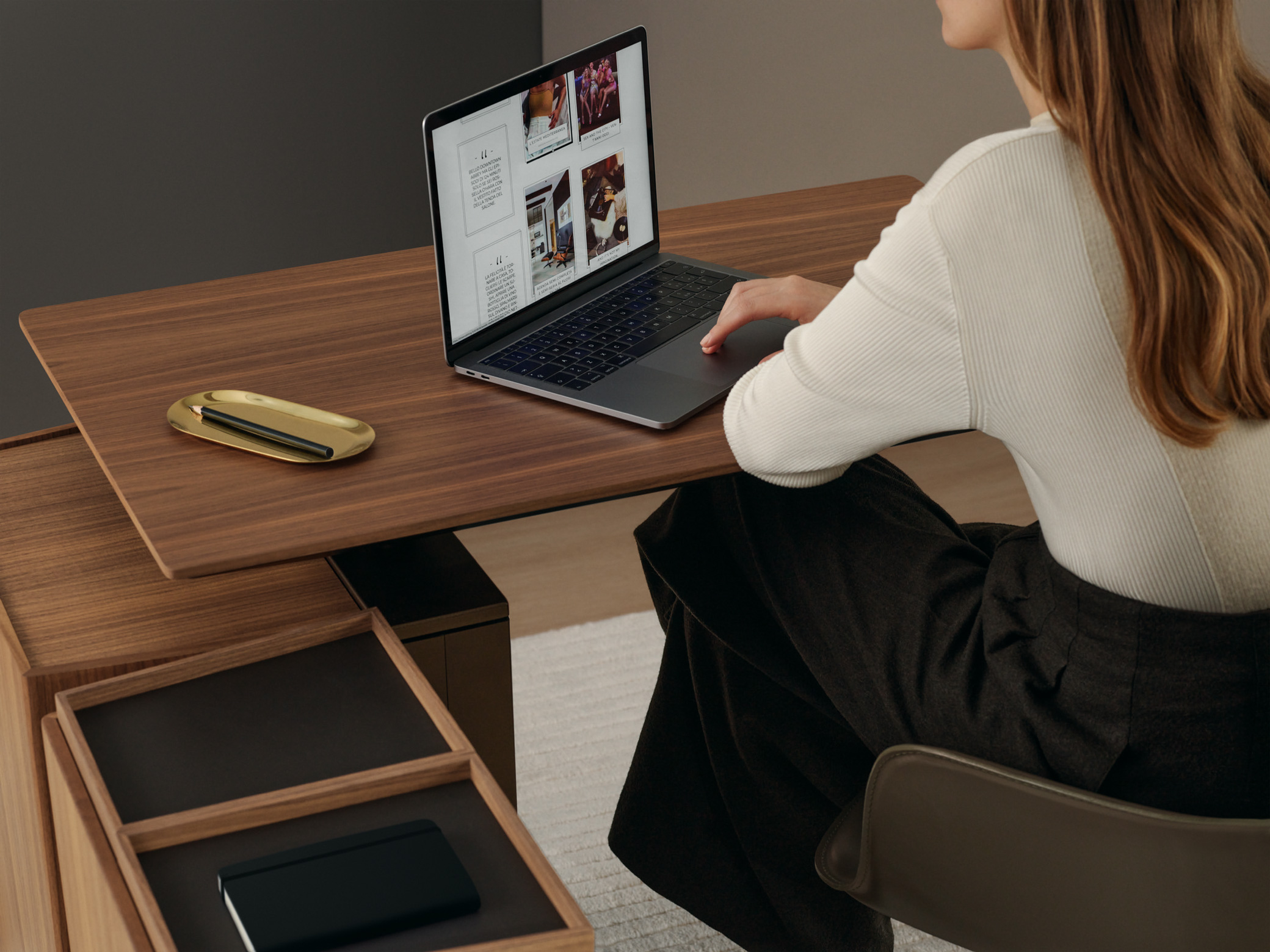Search for articles, topics or more
browse by topics

Search for articles, topics or more

The open-plan office is the most universally applied format in the world of work. New technologies have transformed the workplace into an adaptable space prioritising sharing and communication. Milan-based industrial design agency Studio Klass has produced an innovative workstation, the Touch Down Unit, inspired by the concepts of inclusion and flexibility.
 Touch Down Unit (2019), Studio Klass, UniFor
Touch Down Unit (2019), Studio Klass, UniFor
The workplace has frequently evolved to consider the needs of the company rather than those of the individual. An important step was undoubtedly the move from the traditional cubicle office – a series of individual workstations, often screened, favouring individual accomplishment – to the open-plan office, which, over the past 20 years, has become the universally applied format. It has revolutionised our conception of the office, removing barriers in order to foster human relations, sharing and communication.
As often happens, however, the theory is never entirely confirmed by the reality. Those who work in open-plan offices day by day experience a whole series of difficulties, noisy distractions and the impossibility of staying concentrated for any length of time.
The technological revolution did not gradually creep into the contemporary office, however, but asserted itself very quickly in places that were unprepared for such sudden changes – because they were often dated and had been designed with another vision of the office in mind.
 Touch Down Unit (2019), Studio Klass, UniFor
Touch Down Unit (2019), Studio Klass, UniFor
There was, therefore, a sudden misalignment between the workers – up-to-date and ready to make the most of the technologies available, such as fast connections, remote working and digital instruments that put them in touch with clients and colleagues all over the world – and the spaces in which they were forced to work day by day, incapable of supporting them or of adapting to these changes.

Another important aspect of this transformation has been the gradual rise in the number of professionals who don’t need to be present in the office on a daily basis or prefer to work from home and only come to the office for meetings or occasional tasks. In this case, the office has to be capable of evolving and adapting to the requirements of those who experience the space in different ways. The possibility of remote working has substantially revolutionised the configuration of the office over the past few years, almost completely dematerialising the classic fixed workstations in favour of open solutions and hot-desking.
More recently, technology has become part and parcel of our lives and the way we work, profoundly changing both the tools we use and the ways in which we relate to each other.
Among the various workers rotating around the contemporary office, there are numerous people who work as freelancers or external consultants. These workers have become an indispensable resource for businesses, but the situation creates considerable stress for the people who find themselves having to work with a company that fails to satisfy their needs, obliging them to work in places that are unsuitable for the tasks they perform.

It becomes not only a functional issue but also a psychological one – the company needs to demonstrate that these workers are an integral part of a group. This is how the Touch Down Unit, designed by Milan-based industrial design agency Studio Klass for UniFor, has taken shape, providing an innovative new product for workspaces.
Kitchens are everyday spaces that exist to meet an immediate functional goal. When well designed, they are highly calibrated to support the convenient preparation of food.
In the centre of Milan, a short walk from the duomo, is Villa Necchi Campiglio, designed by Piero Portaluppi (1888-1967) for the Necchi Campiglio family between 1932 and 1935.
How we understand the world of design can depend on the means by which we engage with the subject.
Thanks for your registration.